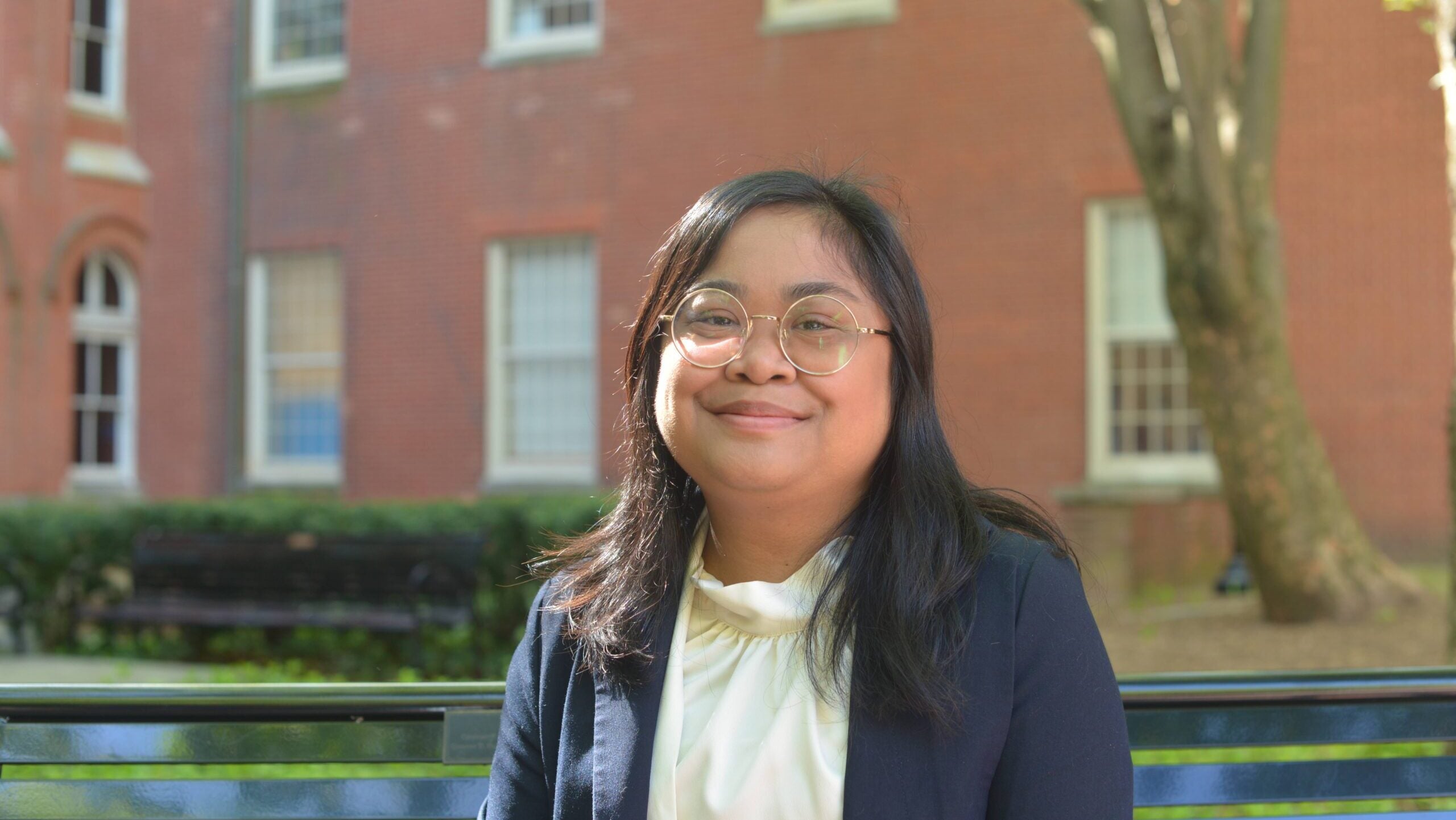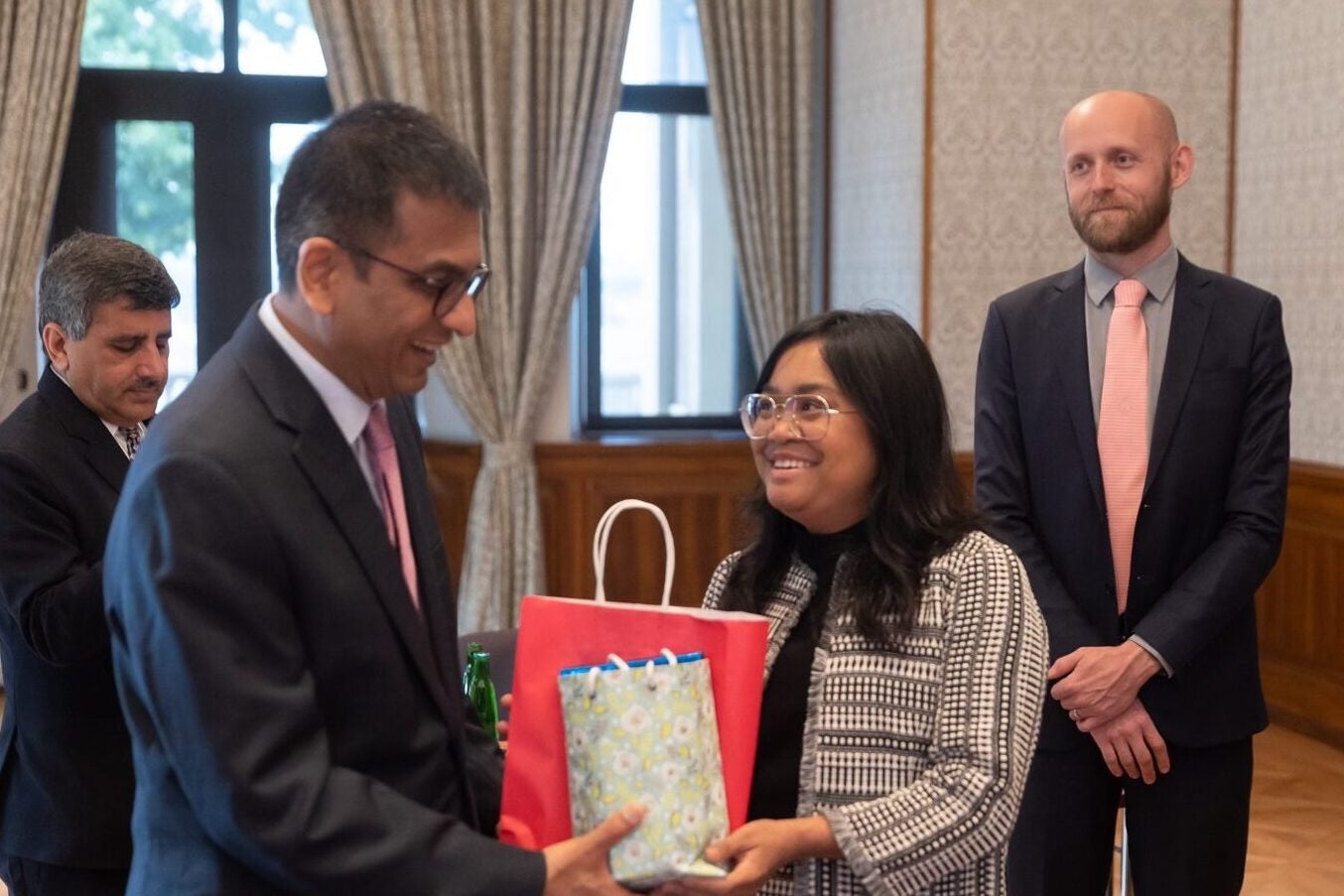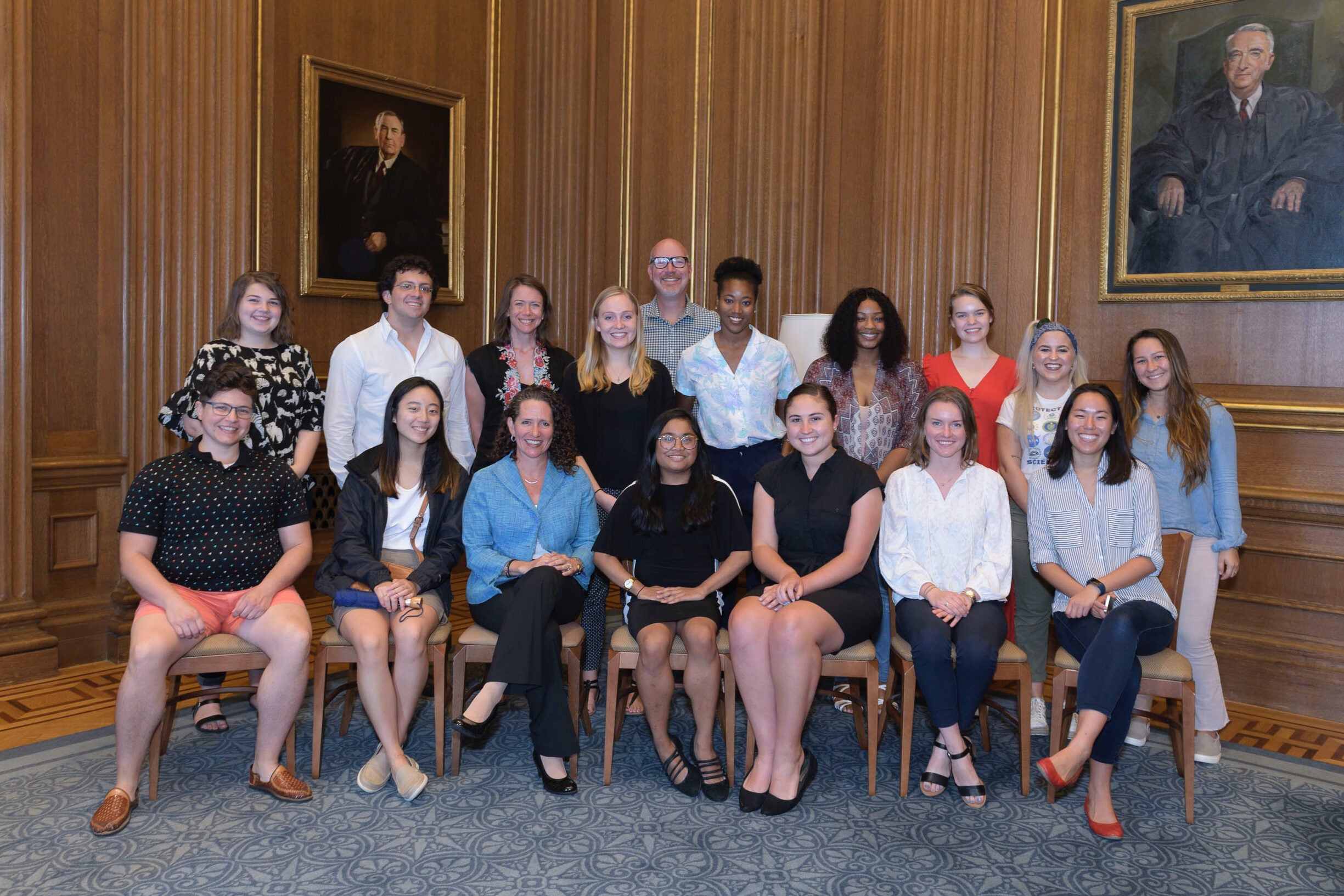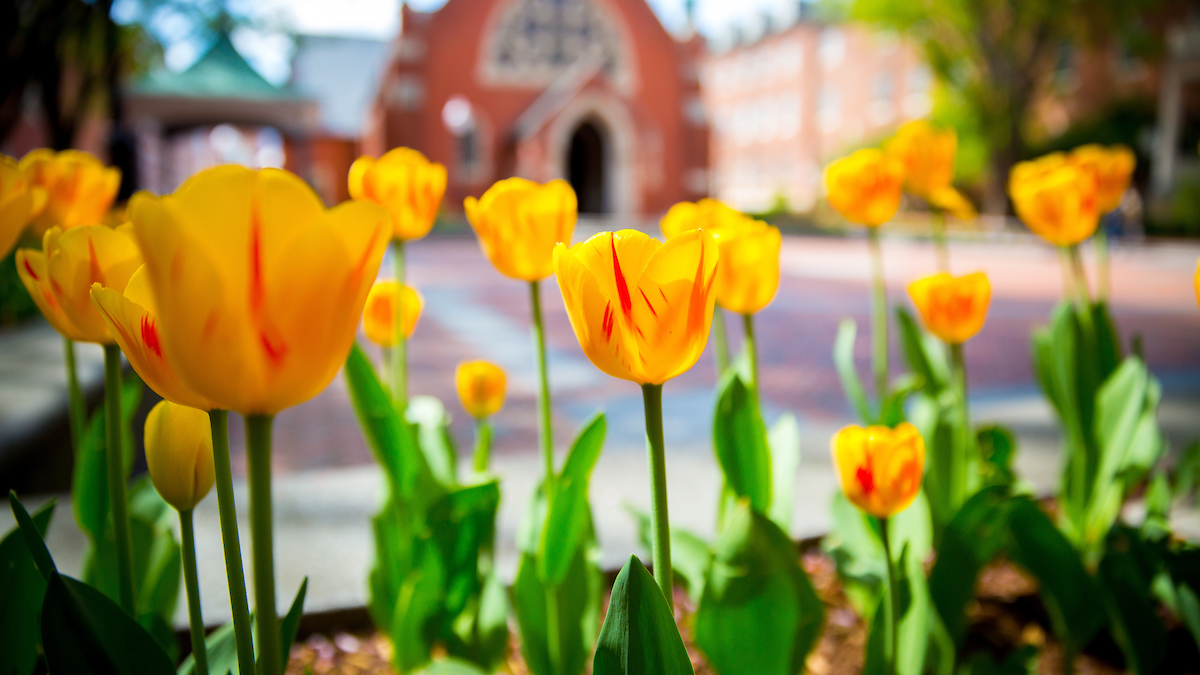Four CAS Students Receive Prestigious Goldwater Scholarship
This year, four students in the College of Arts & Sciences received one of the most prestigious awards for undergraduates in science, technology, engineering and math.
Read Full Story
Celine Calpo (C’19) was recently named a 2024 Paul & Daisy Soros Fellow. She plans to use the award, totaling some $90,000, to pursue a law degree.
The fellowship, a merit-based award for immigrants and children of immigrants, has opened up pathways to graduate education for more than 800 students since 1998. This year’s class was incredibly selective, with just 30 fellows chosen from a pool of more than 2,300 applicants.
“I feel extremely lucky to have won this prestigious fellowship. I owe a lot to my friend, Amanda Scott-Daigle (C’19), for suggesting I apply for it while we were undergraduates, and of course to my family, who nurtured my intellectual curiosity, sacrificed a lot to ensure I would go to college and taught me the importance of who and where I come from.”
Calpo, who currently works as a program specialist at The Federal Judicial Center – the research and education agency of the U.S. federal courts – is excited to continue pursuing questions of judicial policy and education. In her role, she helps facilitate international judicial exchanges between U.S. judges and their foreign counterparts. She has also served as junior faculty in rule-of-law programs abroad, teaching judges computer skills.
Her interest in judicial administration and education was an avenue of interest she started down while an undergraduate on the Hilltop.
Calpo’s fascination with the federal court system began when she arrived in Washington, DC as a first-year student.
“I came to Georgetown not really knowing what I wanted to do,” said Calpo. “During move-in week, I took a private tour of the Supreme Court and immediately fell in love with the library. I enrolled in classes on constitutional law because I thought I might become a law librarian.”

Calpo receiving a gift from the Chief Justice of India, the Honorable D.Y. Chandrachud, for her assistance in several U.S.-India judicial education workshops.
Calpo, who has ample archival and library experience, found herself drawn to repositories of knowledge. On campus, she worked for three years at Lauinger Library. Off campus, Calpo completed internships with the Library of Congress, The San Diego Museum of Art and the Brookings Institution, where she worked in their archives.
As an American studies major, Calpo was able to pull from a wide range of sources, like any good archivist.
“Finding the American studies community was an incredibly important part of my Georgetown experience,” said Calpo. “If it weren’t for the interdisciplinary aspects of the American Studies program, I would have never been able to take Constitutional Law with Joseph Hartman, study judiciaries around the world with Diana Kapiszewski and learn about technologies of power with Erika Seamon. All these classes led me to the field I am working in right now, and have prepared me to succeed in law school.”
“Celine is a force of nature. Her curiosity is insatiable. She has a tremendous work ethic,” said Erika Seamon, a teaching professor in the American Studies Program. “And, at every turn, she is considering the perspectives of people who may not be holding the microphone.”
To fulfill the requirements of her major, Calpo completed a substantial thesis project during her senior year, which focused on the appearance and articulation of ethics on the Supreme Court.
“I had this question in the back of my head: Why are there no cameras allowed in the courtroom?” Calpo explained. “I ended up interning for the Supreme Court of the United States and working under the photographer of the Supreme Court. I learned a lot about how the judiciary emphasizes appearance, particularly in the judiciary’s codes of conduct, which caution against the appearance of impropriety.”

In 2018, Calpo gave a tour of the Supreme Court of the United States to members of the American Studies community.
Calpo explored what she calls the “judicial lifetime” of the three Associate Justices appointed by President Ronald Reagan, tracking their media coverage from the moment they were nominated through their departure from the bench.
“My thesis explores how the media shapes our perception of federal judges by pushing particular narratives and accentuating certain aspects of their personality or career. At the same time, the pressure of being observed influences judicial behavior in public, like during confirmation hearings, where nominees dance around hypothetical questions. It creates a situation where we take legal norms and standards of judicial ethics for granted, until concrete evidence proves that our systems of regulation are not enough.”
“Celine has unique and important expertise on culture of the Supreme Court that she will bring to a top law program,” said Seamon. “She appreciates that the power of the Court not only comes from the opinions, but also from the traditions that animate what happens inside.”
On the Hilltop, Calpo was able to find a supportive community of faculty and peers that welcomed her to campus and made her feel like a valued part of a larger whole.
My personal experience was reflected in that book. It was in that class, through that book and Professor Hochman’s choice to teach that book that I felt like I belonged at an elite university such as Georgetown – that my people and my culture were valued.
Celine Calpo (C’19)
The first community to welcome her was the Georgetown Scholars Program (GSP), which set her up with a mentor, Angelica Garcia (C’21), and provided her continuous support throughout her time on the Hilltop. The guidance provided by GSP and Georgetown’s financial aid package allowed Calpo to focus more on curating her classes to fit her intellectual and personal interests instead of figuring out how to pay for her education.
“Georgetown actually helped me grow more confident in my Filipino-American identity,” said Calpo. “In my high school in California, Filipino language was offered as a course and we had a Filipino culture club, because a good portion of the student body was Filipino. When I arrived at Georgetown, I was skeptical about whether I’d be able to find Filipino representation to the same extent.”
However, she recalls one class in particular that put those worries to rest – a survey course of American literature taught by Brian Hochman. The course, which Calpo took to complete her core humanities requirement, explored the scope of America’s literary and cultural history from 1900 to the present day.
“Professor Hochman had us read Carlos Bulosan’s America Is in the Heart,” remembered Calpo. “That was my first exposure to a Filipino-American work being part of the American canon. That experience helped me begin to get over things like imposter syndrome, which I experienced as a first-generation, low-income student.”
“My personal experience was reflected in that book. It was in that class, through that book and Professor Hochman’s choice to teach that book that I felt like I belonged at an elite university such as Georgetown – that my people and my culture were valued.”
Hochman, the Hubert J. Cloke Director of American Studies, fondly remembers the course and Calpo’s invaluable contributions to class discussions.
“I not only remember reading Bulosan with Celine back in the spring of 2016, I remember a specific passage from the opening chapters of America Is in the Heart that she brought to the attention of the class. It stopped all of us in our tracks,” said Hochman. “When you teach, your deepest, most abiding hope is that you can learn as much from your students as they learn from you. With Celine that was the case. I haven’t taught that book the same way since.”

This year, four students in the College of Arts & Sciences received one of the most prestigious awards for undergraduates in science, technology, engineering and math.
Read Full Story